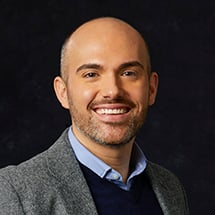Brandon Dunn
Brandon Dunn
Why did you decide to start continue your legal career at Ropes & Gray?
The people and caliber of the tax practice were what led me to choose Ropes & Gray. When I was a student at Boston College Law School, one of my professors at the time was a former Ropes & Gray tax lawyer. A separate tax professor, and mentor of mine, also praised Ropes & Gray for the strength of its tax department. Their endorsements spoke to the reputation of the Ropes & Gray tax practice within the academic community. After having had the opportunity to meet several members of the tax department, I quickly realized that they were hard-working and intelligent problem solvers. Finally, I chose Ropes & Gray because of the level of sophistication among its clients and the complexity of its transactions. I knew I would never be bored.
How has Ropes & Gray helped you build a career as a lawyer?
The trainings and mentorships (both formal and informal) in which I’ve been involved throughout the years have allowed me to grow into the lawyer that I’ve become today. There are multiple partners in the tax department who have taken me under their wings and set me up for success as a lawyer. They are great resources for me professionally and have also modeled a sustainable work-life balance. Aside from the billable work, Ropes & Gray has afforded me the opportunity to expand my skillset by encouraging pro bono work.
Tell us about a memorable matter you’ve worked on.
I represent a European investment fund sponsor in the fundraising and negotiating of several commingled funds and separately managed accounts with domestic and international investors.
I started as the junior associate tasked with overseeing applications for tax IDs and entity classification elections, and have since become the lead tax associate. Given my six-year involvement with this relationship, I have been able to forge meaningful connections with the client and take ownership of all tax aspects of their various fundraisings. It has also afforded me an ongoing opportunity to negotiate with opposing counsel and refine my drafting skills. Finally, I’ve been able to collaborate closely with the corporate team and better understand their role and perspectives.
Tell us about a pro bono matter you’ve worked on.
I represented a resident of Pine Street Inn who was facing a proposed termination of her housing benefits from the Boston Housing Authority. I was the lead lawyer in coordinating with the client and the Boston Housing Authority. I interacted regularly with the client to help understand her situation and build her case. The representation culminated in an in-person meeting with the Boston Housing Authority, during which they agreed to withdraw their proposed termination of my client’s housing benefits. This case was a wake-up call to the injustices that pervade our public housing and homeless system. It also was a reminder that everything we do in the law has a human element and that behind every decision we make is a human whose life is being affected.
Everything we do in the law has a human element.”
How would you describe the firm’s culture?
Collegial.
What tips would you offer to a potential applicant?
Be yourself.
